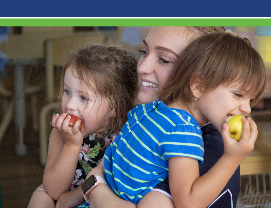Course info
Throughout the series, you will hear from various practitioners about their professional practice and critical reflection process with subsequent quality improvements. At the end of this series, you'll have a theoretical framework, a solution-focused conversation guide, and practice possibilities and ideas to guide rather than control children's behaviour.
The series is divided into two parts.
Part 1 will explore and reflect on current approaches to understanding behaviour with a research-informed practical framework (the Phoenix Cups) that can be applied to your educational practice.
Part 2 will develop your understanding of action research and how this practice, together with your knowledge of the Phoenix Cups framework, can be used to implement practice change in your service.
Learning outcomes
In this series, you will:
- discuss current approaches to guiding and supporting children’s behaviour
- reflect on big behaviours and how to engage in behavioural learning
- explore a research-informed practical framework and how this can be incorporated into your educational practice
- define how an educator’s action research, combined with a framework and professional learning, can immediately positively affect practice
- describe what is needed to create a culture of professional inquiry and reflect on how this could be implemented at your service
- identify how to use a solution-focused conversation framework when discussing children’s behaviour.
Recommended for: This course suits all levels of early childhood educators, leadership, centre managers and approved providers.
